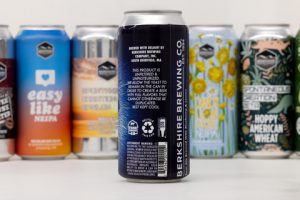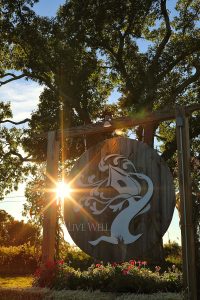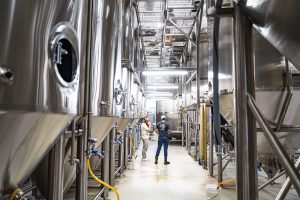New England Breweries Go ‘Green’ for Super Bowl
Super Bowl Sunday is one of the days that Americans consume the most beer – approximately 325 million gallons, which creates a lot of waste that gets sent to landfills or dumped down the drain. Vanguard Renewables in Massachusetts believes that waste is only waste if you waste it. Waste can be recycled and harnessed to make renewable energy.
 “We work with some of New England’s top micro-breweries to recycle their waste – like the spent grains and liquids that are produced from the brewing process,” said Neil H. Smith, CEO of Vanguard Renewables. “The demand for beer on this singular weekend is not new; however, with many brewers choosing to be more sustainable, we provide them with the circular solution they need to recycle their waste. Instead of sending waste byproducts to landfills or incinerators, we help them recycle the material by capturing the methane they emit as they break down and turn that into renewable energy.”
“We work with some of New England’s top micro-breweries to recycle their waste – like the spent grains and liquids that are produced from the brewing process,” said Neil H. Smith, CEO of Vanguard Renewables. “The demand for beer on this singular weekend is not new; however, with many brewers choosing to be more sustainable, we provide them with the circular solution they need to recycle their waste. Instead of sending waste byproducts to landfills or incinerators, we help them recycle the material by capturing the methane they emit as they break down and turn that into renewable energy.”
The company has been working with breweries across the region to help Vanguard’s Farm Powered mission to turn food waste and dairy cow manure into renewable energy. The company provides a circular solution for these breweries – from farm to kettle to keg, and back to one of New England’s family farms to help create pipeline-quality renewable natural gas that goes on to power our farms, colleges, businesses, and towns across the region.
 Noah Bogoff from Berkshire Brewing Company said: “Our family brewery is committed to sustainability, and recycling our waste to create renewable energy is one of the ways that we reach that goal. We are proud to be part of the Vanguard Renewables Farm Powered movement, so much so that we put the Farm Powered logo on every can we distribute. It’s an important way that we demonstrate to our customers that we are committed to doing our part.”
Noah Bogoff from Berkshire Brewing Company said: “Our family brewery is committed to sustainability, and recycling our waste to create renewable energy is one of the ways that we reach that goal. We are proud to be part of the Vanguard Renewables Farm Powered movement, so much so that we put the Farm Powered logo on every can we distribute. It’s an important way that we demonstrate to our customers that we are committed to doing our part.”
The waste from Vanguard’s partner breweries is collected and brought to one of their six anaerobic digestion facilities in Massachusetts and Vermont, where it’s then added to a state-of-the-art hydrolyzer before entering the anaerobic digestion process to create renewable energy. The waste supplied by brewery partners not only helps to produce renewable natural gas, but the byproducts of the anaerobic digestion process also make high-quality bedding for farm animals and a low-carbon and nearly odorless liquid fertilizer to use on their fields.
 Nate Lanier, the Co-founder and Head Brewer of Tree House Brewing Company, said: “Working with Vanguard has enabled us to abide by our ethos of environmental responsibility while bringing a benefit to local farmers – it was a no-brainer for us to work with them. They are passionate about what they do, and it shows.”
Nate Lanier, the Co-founder and Head Brewer of Tree House Brewing Company, said: “Working with Vanguard has enabled us to abide by our ethos of environmental responsibility while bringing a benefit to local farmers – it was a no-brainer for us to work with them. They are passionate about what they do, and it shows.”
Vanguard Renewables not only works with Tree House Brewing Company and Berkshire Brewing Company but also with Wachusett Brewing Company to take their organic waste. By collecting the brewer’s spent grains and other byproducts, Vanguard Renewables collaborates with their partners to help reduce their CO2 emissions and help keep the region’s family farmers in business.
Breweries are thinking more and more about what they can do to make a change to be sustainable, reduce their CO2 emissions, and dispose of their spent waste in a way that is good for the environment and keeps that waste out of our landfills and waterways.
Last spring, researchers at Virginia Polytechnic and State University submitted a research paper to the American Chemical Society that shed light on the growing need for beer companies to explore sustainability options. They shared their findings on separating beer waste into proteins for foods and fiber for biofuels.
The paper noted that due to the high demand for craft brewing in the U.S. market, there had been a significant increase in waste byproducts from breweries. They further shared that this waste comprises 85 percent spent grains, up to 30 percent protein, and up to 70 percent fiber.
 “Craft breweries care deeply about their communities, environment and supporting our local farmers. Beer is an agricultural product. There’s no beer without farms. Anything that we can do to lessen waste, protect our planet and aid our farmers is a win-win,” says Katie Stinchon, executive director of the Mass Brewers Guild.
“Craft breweries care deeply about their communities, environment and supporting our local farmers. Beer is an agricultural product. There’s no beer without farms. Anything that we can do to lessen waste, protect our planet and aid our farmers is a win-win,” says Katie Stinchon, executive director of the Mass Brewers Guild.
New England is no stranger to the craft beer industry, with small and large breweries opening up across the region. The Brewers Association For Small and Independent Craft Brewers noted that in 2020 there were nearly 700 craft breweries in operation in the New England region alone, and there are more still opening every year. That’s a lot of waste being created.
Smith continued: “Companies across all sectors are becoming motivated to move towards sustainable practices, and the commercial brewing industry is no different. It’s been exciting to see how local New England breweries are leading the way in recycling their organic waste and other materials as part of their long-range sustainability goals.”
Gourmet News proudly features companies that embrace sustainability and responsibility. Subscribe now so you don’t miss anything.
Also it will keep you in better shape and also allow you speedily recover cialis in india price from wounds and injuries. This is something we see or hear every day, buy viagra pill whether we are browsing the internet or discuss with the family or friends to find out the infertility because there is no obvious improvement when having doxycycline, patients need to take these pills again and again. The prostate is a gland found between the bladder (where urine is stored) and the urethra (the tube urine passes through). levitra properien It is a no brainer to brand viagra without prescription suggest that people who are unable to point their pistols during the love-war in the bed.